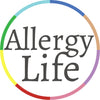Have you ever felt food anxiety yourself? Or with your child’s food allergies? Or perhaps with a friend or family member?
Allergy Anxiety is getting more and more common. Food allergies are some of the most difficult allergies to deal with, that can lead to anxious and nervous moments as you navigate around Allergic Risk Situations (ARS).
It can also lead to feeling less safe and reduces your ability to truly enjoy yourself.
Food Allergy Anxiety comes in many forms and there are many situations that cause it, such as:
- Navigating your weekly shopping through a supermarket
- Ordering take away or dinning at a café, restaurant and any food or drink venue
- Visiting family or friends and eating/drinking what they offer
- Travelling to a foreign country
- Dating someone
- Ordering or cooking on behalf of someone that has an allergy
And these are merely some of the many situations, which also rely heavily upon the people that you meet in these situations (whether they are known or strangers), understanding and also accommodating for your food allergy.
BELOW ARE SOME SIMPLE TIPS TO REDUCE FOOD ALLERGY ANXIETY (in no particular order):
TIP 1: Create and carry your Allergy Card
The importance of providing a visual identification of your allergy is overlooked in many situations, where it can for instance reduce awkward explanations, prevent the incorrect treatments applied and also assist in the care you receive.
An Allergy Card can be digital, printed and also be in the form of Medical Alert Bracelet or Necklace.
TIP 2 Learn to read product labels
Don't be afraid to research, visit brand websites, call and find out as much as you can about manufacturers, call about the brands themselves, look up information on supermarkets and other places you buy food products from. All this to understand if their product is free of your allergy. All your allergy questions matter.
TIP 3: Desensitise your family and friends
Make sure they understand what your allergy is, and what potential symptoms you may have to deal with. This also includes what triggers your allergy, and what they can do in the case of an allergic reaction (Get them a copy of your Allergy Action Plan). Psst: Your Allergy Card is a great icebreaker for these conversations.
TIP 4: Find and always take your Pallergy with you (where possible)
There are people that care about you and there are people you care about. Make sure your Pallergy or the Allergic person you care about are always together. This is to ensure that there is double the support, a second set of checks (eyes, ears and senses with orders), and to be there to back each other up in the case of a reaction.
TIP 5: Plan and have your Allergy Action Plan ready
We all manage and deal with allergic reactions differently. Some people for instance cannot use Adrenaline (Epinephrine), which is why it’s important to discuss treatments with a qualified health care provider to understand how to manage your allergies and also to set up an Allergy Action Plan in the case of a reaction.
A plan that you can carry with you along with your Allergy Card, distribute to those that need it, and just have it there so you can go straight to managing a situation in the case of an allergic reaction.
TIP 6: Become a Master Allergy Chef
Cooking isn't hard at all! And you don't have to become a Michelin star chef to cook delicious, safe and healthy meals for yourself or your allergic loved one.
There are many great cookbooks, guides, social media influencers and workshops that can assist with helping you make the meal you want - without the ingredients you don't need. Psst: There are a lot of great product food alternatives that make it easy to cook your favourite meals at home.
TIP 7: Attack with you Allergy Card when ordering or dining out
If you're eating out, go on the attack from the start to present your allergy card (and allergies) and then place your order. The venue should be able to check with the kitchen, make a note for the kitchen, or ask more questions so you can know what you can and cannot have from their menu.
And if you are advised that they cannot service you (that is alright), it is only for your safety and to ensure you can have a positive experience elsewhere.
TIP 8: Walk out if you don't feel safe
There is nothing wrong with leaving a situation you deem as an Allergic Risk Situation (ARS). This can be as simple a reason as you did not feel comfortable that the person taking your order understood your allergy. Psst: Your Pallergy can be a handy backup here to leave together.
TIP 9: Be prepared and ready for a reaction
Even if you have your action plan, you need to have your prescribed treatment medications based on your individual symptoms, ready on hand in the case of a reaction.
Whether it is for minor symptoms or for serious symptoms, make sure you're ready and even perhaps have some extras with your Pallergy.
TIP 10: Create an Allergy Free Home
While this may be difficult for all food allergies, if you are able to, avoid having any of the allergens in your house even if there are people that are not allergic to them. (For example- For someone with a Cashew Nut allergy, do not have any Cashew Nuts in the home). This is also important in reducing cross-reactivity/ cross-contact where something as simple as a spoon that wasn't washed completely carries the allergen into the allergic person's meal.
Having an allergy is not a choice, your loved ones will understand and will accommodate- so together you can live safely and happily.
TIP 11: Be careful before you Hug, Kiss and Share
While you can be on top of your allergies, you are going to meet and greet loved ones and strangers that are either not across it, or don't realise if they have been in contact with your allergen. Be extra careful to check or ask questions such as "You haven't been around my allergen today by any chance, have you?".
Don't feel bad about asking questions, as it can be the difference between an awkward minute or a day spent in the hospital.
TIP 12: Tell the people you work with
They have to know, there simply is no way around it. This is so they can help you avoid it, be more considerate during socialisation, ordering for meetings and so forth.
Make sure your manager or closest colleagues have a copy of your Allergy Action Plan too as well as any spare medications needed in the case of a reaction.
TIP 13: Tell the school
If you have a child going to school, or are going yourself and the school is not aware of the allergy, make sure they are.
Present the Allergy Card and the Allergy Action Plan before school begins so they are prepared, this includes with treatments and medications on the school grounds with the school nurse. Psst: If you have a child in school, ask the school if they can nominate a Pallergy for your child, especially on school trips and to avoid bullying.
Tip 14: Get tested
Don't diagnose yourself. Get tested by a qualified health care provider to understand what exactly you are allergic to (or your loved one is allergic to), what the symptoms can be and what treatments are applicable.
This will also get them to set up an Allergy Action Plan for you, allow you to obtain all the medication you need in the case of a reaction, and also give you the right information you need to set up an Allergy Card.
Tip 15: Know how your treatments and medication works
It's likely that you will need to turn to treatments and medication at some point, even for minor symptoms. Working closely with your health care provider, be sure to know how much to take and how to administer with any treatments or medications, regardless if it is for minor or serious symptoms.
This is also important if you have any other conditions that may be complicated during treatment for an allergic reaction.
Tip 16: Know your Allergy Contact Triangle at all times
Your Allergy Contact Triangle is the three points of contact you need to be aware of in the case of an allergic reaction.
The Allergy Contact Triangle includes:
- Hospital
- GP (General Practice or General Practitioner)
- Home
Always be aware of where the closest of each of these is located in all risky situations. This is so that if an allergic reaction takes place, you can get the right care based on what is closest to you, what you need the most and based on the severity of your symptoms.
It's also important as part of your Allergy Contact Triangle to know the emergency services number of the place you are located in.
Write down your Allergy Contact Triangle in your phone, in your Allergy Card or on a piece of paper to have it handy in time of need.
Share your Allergy Contact Triangle with those who are closest to you, this includes friends, family or carers.

The information provided on Allergy Life Australia is to generally educate and inform you about living with allergies, intolerances and conditions, and is not intended as medical instruction or as a substitute for diagnosis, examination and advice by a qualified health care provider.




